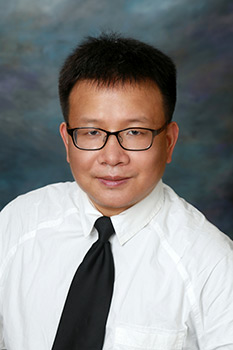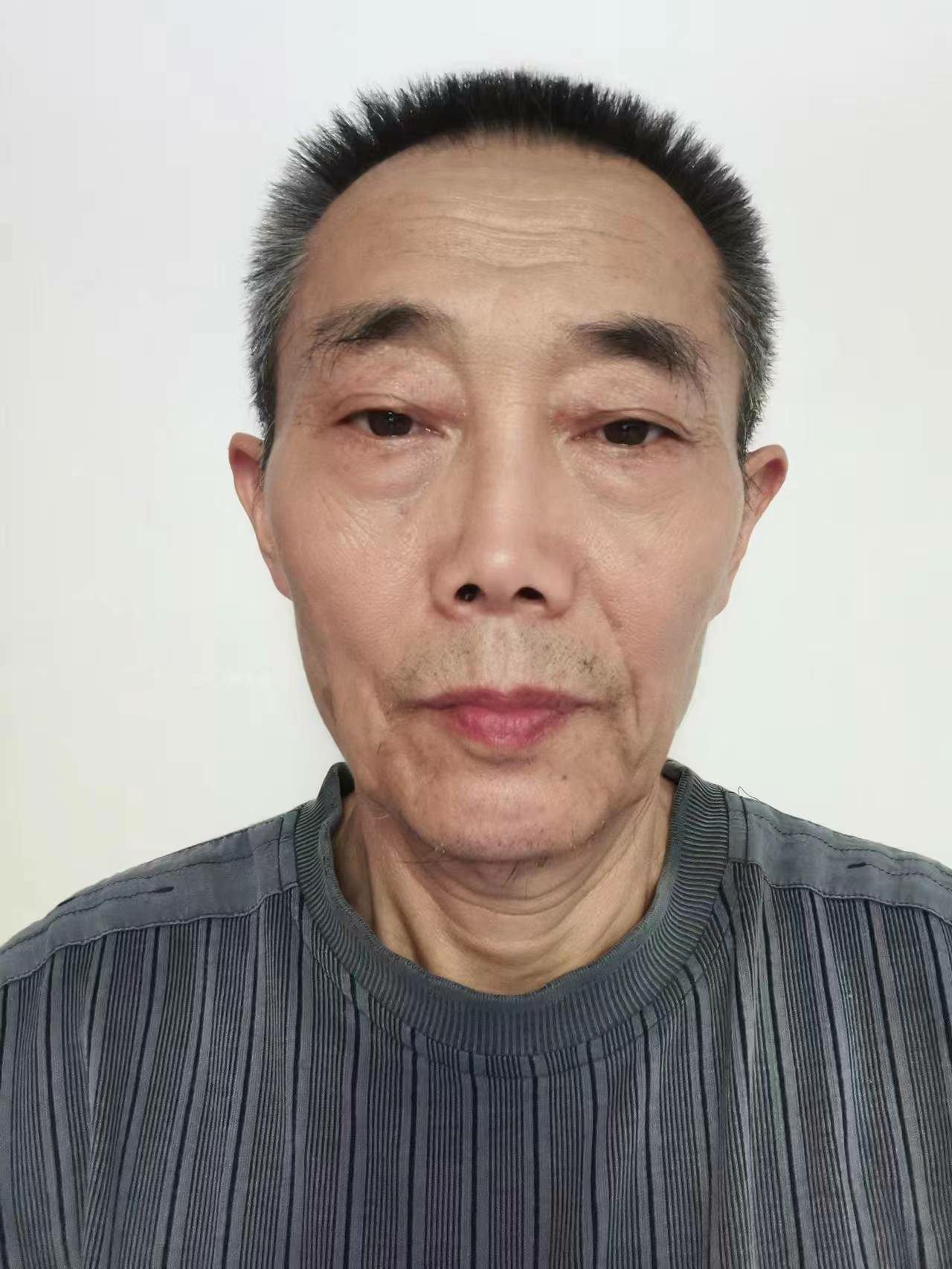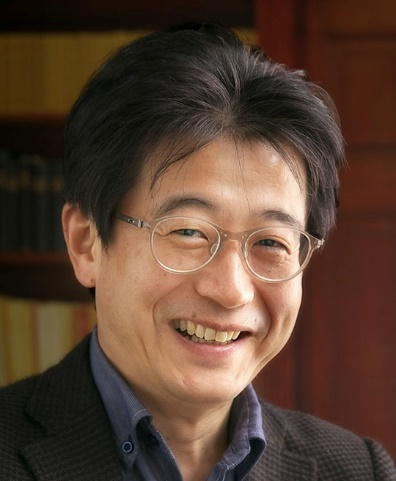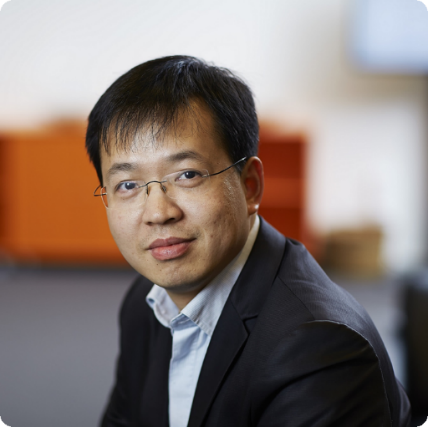Speaker: Prof. Xuemin Shen (University of Waterloo)

Bio: Professor Xuemin (Sherman) Shen is currently a University Professor with the Department of Electrical and Computer Engineering, University of Waterloo, Waterloo, ON, Canada. His research interests include network resource management, wireless network security, social networks, 5G and beyond, and vehicular ad hoc and sensor networks. He was a Distinguished Lecturer of the IEEE Vehicular Technology Society and Communications Society. Professor Shen received the RA Fessenden Award in 2019 from IEEE, Canada, the Award of Merit from the Federation of Chinese Canadian Professionals (Ontario) in 2019, the James Evans Avant Garde Award in 2018 from the IEEE Vehicular Technology Society, the Joseph LoCicero Award in 2015. the Education Award in 2017 from the IEEE Communications Society and the Technical Recognition Award from Wireless Communications Technical Committee in 2019 and AHSN Technical Committee in 2013. He is the President of the IEEE ComSoc. He was the Vice President for Technical & Educational Activities, Vice President for Publications, Member-at-Large on the Board of Governors, Chair of the Distinguished Lecturer Selection Committee, and Member of IEEE ComSoc Fellow Selection Committee. He was the Editor-in-Chief of the IEEE INTERNET OF THINGS JOURNAL, IEEE NETWORK and IET Communications. He is a Fellow of the IEEE, Royal Society of Canada, Canadian Academy of Engineering and Engineering Institute of Canada, and a Foreign Fellow of Chinese Academy of Engineering.
Speaker: Prof. Rongxing Lu (University of New Brunswick)

Title:
Traceable and Privacy-Preserving Worker Selection Scheme with Arbitrary Spatial Ranges in MCS
Abstract:
Worker selection that is often outsourced to a cloud server is crucial for the success of the Mobile Crowdsensing (MCS) system, in which the spatial constraint plays a fundamental role in selecting workers. To protect the location information involved in the spatial constraint, several privacy-preserving worker selection schemes were proposed. However, they either only support a specific spatial range or cannot trace the workers who leak secret keys. In this talk, we present a traceable and privacy-preserving worker selection scheme that can support arbitrary spatial ranges when selecting workers and trace the worker when his/her secret key is leaked to the cloud server for inferring location information. Security analysis demonstrates the privacy preservation and traceability of our proposed scheme, and the evaluation results illustrate its efficiency.
Bio: Rongxing Lu is a Mastercard IoT Research Chair, a University Research Scholar, an associate professor at the Faculty of Computer Science (FCS), University of New Brunswick (UNB), Canada. Before that, he worked as an assistant professor at the School of Electrical and Electronic Engineering, Nanyang Technological University (NTU), Singapore from April 2013 to August 2016. Rongxing Lu worked as a Postdoctoral Fellow at the University of Waterloo from May 2012 to April 2013. He was awarded the most prestigious “Governor General’s Gold Medal”, when he received his PhD degree from the Department of Electrical & Computer Engineering, University of Waterloo, Canada, in 2012; and won the 8th IEEE Communications Society (ComSoc) Asia Pacific (AP) Outstanding Young Researcher Award, in 2013. Dr. Lu is an IEEE Fellow. His research interests include applied cryptography, privacy enhancing technologies, and IoT-Big Data security and privacy. He has published extensively in his areas of expertise. Currently, Dr. Lu serves as the Chair of IEEE ComSoc CIS-TC (Communications and Information Security Technical Committee), and the founding Co-chair of IEEE TEMS Blockchain and Distributed Ledgers Technologies Technical Committee (BDLT-TC).
Speaker: Prof. Tao Xiang (Chongqing University)

Bio: Prof. Tao Xiang received the BEng, MS and PhD degrees in computer science from Chongqing University, China, respectively. He is currently a Professor and the Deputy Head of College of Computer Science at Chongqing University. He was a visiting scholar at University of Massachusetts Lowell, the Chinese University of Hong Kong, and City University of Hong Kong. He is an Associate Editor of IEEE Transactions on Cloud Computing and IEEE Transaction on Cybernetics. He is the senior member of IEEE and CCF. He is the recipient of New Century Excellent Talents in University and Distinguished Young Scholars of Chongqing. Prof. Xiang's research interests include cloud security, network security, blockchain, AI security, multimedia security, data privacy and cryptography. He has published over 150 papers on international conferences including INFOCOM, MM, IJCAI, SIGKDD, ICDE, ICME, ASIACCS, etc., and international journals including ACM CSUR, IEEE TIT, TC, TPAMI, TIFS, TPDS, TMM, TCSVT, TCC, TSC, TCYB, IoTJ, JPDC, etc. He received best paper awards at WASA’18, PorvSec’21, DMBD’21, etc. He also served as a committee member for more than 50 international conferences including INFOCOM, ICDCS, IPDPS, GLOBECOM, ICC, etc.
Speaker: Prof. Yupu Hu (Xidian University)

Abstract:
Functional Encryption (FE) is an advanced topic in the field of cryptography, and the Agr17 Functional Encryption scheme is one of the major FE schemes. This scheme is based on the BGG+14 Attribute-Based Encryption (ABE) as a foundational structure and transforms it into a “Partially Hiding Predicate Encryption” (PHPE), which is then combined with a Fully Homomorphic Encryption (FHE) scheme. However, the Agr17 Functional Encryption scheme leaves a question about how the modulus switching operation in the scheme is achieved. This paper discusses the / invalidity of the Agr17 Functional Encryption scheme, meaning that the scheme cannot work for / functions. Specifically, the Agr17 Functional Encryption scheme fails to continue its operation after the modulus switching during the decryption phase. To demonstrate the correctness of our argument, we divide the discussion into two stages. In the first stage, we point out that the modulus switching operation in the Agr17 Functional Encryption scheme must be a double modulus switching, i.e., a modulus switching on both the fully homomorphic ciphertext and the attribute ciphertext parasitic to the fully homomorphic ciphertext. The key points of double modulus switching are as follows: (1) The modulus switching operation on the fully homomorphic ciphertext should be understood as a series of Boolean operations and should be converted into “attribute quasi-homomorphic operations.” (2) The modulus switching operation on the attribute ciphertext parasitic to the fully homomorphic ciphertext is a regular modulus switching under the LWE (Learning with Errors) structure. (3) Both modulus switching operations must use the same modulus; otherwise, the scheme cannot continue its operation. In the second stage, we point out that the modulus switching on the attribute ciphertext parasitic to the fully homomorphic ciphertext disrupts the structure of the attribute ciphertext, rendering subsequent attribute decryption inoperable. This is because the attribute decryption operatio is not a regular LWE decryption but a conditional LWE decryption, and the modulus switching disrupts the decryption conditions. Furthermore, to illustrate that this invalidity is not easily eliminated by modifying the scheme, we provide a "natural" modification scheme, which replaces the small modulus inner product with arithmetic inner product, and the arithmetic inner product can be realized by the modulus inner product of attribute ciphertexts. The modified scheme overcomes the invalidity, meaning that it can decrypt correctly. However, the modified scheme is insecure because the decryptor obtains much more secret information, and with a much smaller cost, collusive attacks can break the modified scheme.
Bio: Yupu Hu is a professor and doctoral supervisor at Xidian University, and also serves as a supervisor of the Chinese Association for Cryptologic Research (CACR). He enjoys a special allowance from the State Council. In 1982, he graduated from the Department of Mathematics at Northwest Telecommunication Engineering Institute (now Xidian University) with a Bachelor's degree in Science. In 1987, he obtained a Master's degree in Probability and Statistics from the Department of Mathematics at Northwest Telecommunication Engineering Institute (now Xidian University). In 1999, he earned a Doctorate degree in Cryptography from Xidian University. His research field is Cryptography. He has been honored with six provincial and ministerial-level scientific and technological awards, including one first prize (ranked first), two second prizes (ranked first and second), and three third prizes (ranked first, fifth, and fifth respectively). He has published over 100 papers in important domestic and international academic journals and conferences, and has authored one academic monograph. He has led and participated in various research projects, such as the National Natural Science Foundation, Doctoral Fund, and National Defense Key Laboratory Fund. One of his outstanding research achievements was in 2015 when he successfully broke the well-known GGH multilinear map and its corresponding multiple cryptographic schemes.
Speaker: Prof. Tsuyoshi Takagi (Technical University of Darmstadt)

Bio: Tsuyoshi Takagi received the Ph.D. degree from the Technical University of Darmstadt, Germany, in 2001. He was engaged in Research on Network Security with NTT Laboratories from 1995 to 2001. He was an Assistant Professor with the Department of Science, Technical University of Darmstadt until 2005. He was a Professor with Future University Hakodate, Japan, and with Kyushu University, Japan, until 2018. He is currently a Professor with the Graduate School of Information Science and Technology, University of Tokyo, Japan. His current research interests are information security and cryptography. He was a recipient of the DOCOMO Mobile Science Award in 2013, the IEICE Achievement Award in 2014, the JSPS Prize in 2015, and the JSPS Outstanding Paper Award in 2019. He was the Program Chair of the 7th International Conference on Post-Quantum Cryptography in 2016, and was the PC Co-Chairs of the Asiacrypt in 2016 and 2017. He was the Chairperson of the Cryptographic Scheme Committee from 2019 to 2022.
Speaker: Prof. Yan Zhang (University of Oslo)

Topic:
Blockchain Research: state-of-the-art topics and future development.
Abstract:
In this talk, we mainly introduce the state-of-the-art research on Blockchain. We first present the Blockchain concept and development in this field. Then, we focus on our recent studies on Blockchain, e.g., Blockahin for renewable energy sharing, Blockchain for data sharing, Blockchain and AI, Blockchain and Digital Twin, and Blockchain and computing power networks. We will also point out the promising future research topices for further study.
Bio: Yan Zhang is currently Full Professor with the Department of Informatics, University of Oslo, Norway. His research interests include next-generation wireless networks leading to 6G, green and secure cyber-physical systems. Since 2018, Prof. Zhang was a recipient of the global “Highly Cited Researcher” Award (Web of Science top 1% most cited worldwide). He is Fellow of IEEE, Fellow of IET, elected member of Academia Europaea (MAE), elected member of the Royal Norwegian Society of Sciences and Letters (DKNVS), and elected member of Norwegian Academy of Technological Sciences (NTVA).